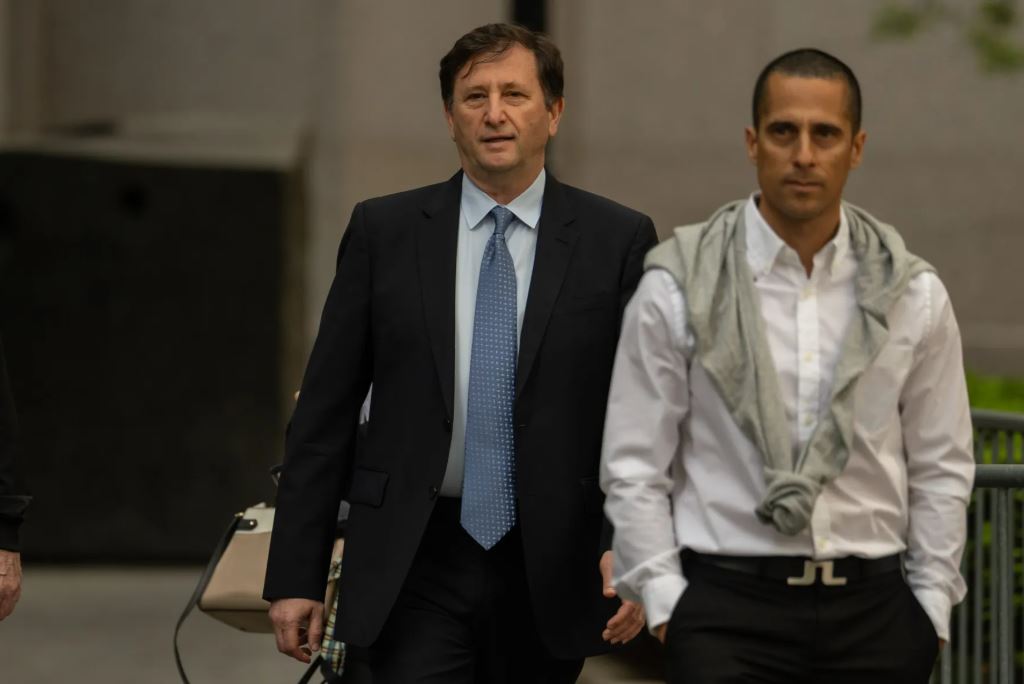
In a landmark ruling that underscores the growing crackdown on crypto fraud, Alex Mashinsky, the founder and former CEO of Celsius Network, was sentenced on Thursday, May 2, to 12 years in federal prison. The sentence, handed down by U.S. District Judge John Koeltl in Manhattan, marks one of the most significant legal consequences to date for a crypto industry figure who misled investors during the sector’s dramatic rise and collapse.
Mashinsky, 59, had pleaded guilty in December 2024 to multiple fraud charges after federal prosecutors accused him of running a scheme that defrauded hundreds of thousands of customers. His company, Celsius Network, was once seen as a promising player in the digital finance space, touting high interest rates on crypto deposits and positioning itself as a safer alternative to traditional banks.

A Fall from Grace
At its peak, Celsius held around $25 billion in customer assets. It gained popularity in part due to Mashinsky’s charismatic YouTube presence and confident claims about the firm’s financial health. He often appeared in weekly “Ask Mashinsky Anything” sessions, where he reassured users that their funds were safe and the platform was stable.
But behind the scenes, prosecutors said Mashinsky was engaging in manipulative trading and making knowingly false statements to prop up the company’s image and boost the value of Celsius’ native token, CEL. The government stated that Mashinsky personally earned about $42 million through CEL token trading, while also hiding the company’s dire financial state.
When the crypto market crashed in mid-2022—a period widely referred to as the “crypto winter”—Celsius collapsed. In June 2022, the company abruptly paused withdrawals, freezing access to over $5 billion in customer assets. It filed for bankruptcy the following month.
Victims Left Reeling
During the sentencing, five victims spoke in court about the severe impact of Celsius’ collapse on their lives. One of them, 49-year-old Hollis Waite, shared how his losses had left him financially crippled and unprepared to fund his daughters’ college education. “This situation is bigger than Alex Mashinsky,” Waite told the court, calling for a harsh sentence to deter other white-collar criminals.
More than 200 letters from victims were submitted to the judge, urging a strong punishment. Prosecutors portrayed Mashinsky as “unrepentant” and part of a “years-long campaign of lies and self-dealing” that devastated countless lives.
Assistant U.S. Attorney Allison Nichols emphasized that Mashinsky’s actions—not the crypto industry itself—were to blame. “It wasn’t crypto that was a bad bet,” Nichols said. “It was Mashinsky.”
A Harsh Yet Symbolic Sentence
The Justice Department had sought a 20-year prison term. Ultimately, Judge Koeltl sentenced Mashinsky to 12 years, a significant term that reflects the scale of damage caused. The sentence also comes amid shifting federal attitudes toward crypto regulation and prosecution.
In his remarks before sentencing, Mashinsky broke down in tears. He apologized to his victims, calling his previous statements “inexcusable.” He claimed the decision to halt withdrawals was made in a rush, in an attempt to protect Celsius’ largest customers from devastating losses.
“All my actions were meant to protect my community, and I failed,” he told the court.
His attorneys, who had asked for a sentence of just over a year, argued that he was caught off guard by the crypto downturn and did not intend to commit fraud. They criticized the government’s depiction of Mashinsky as “some sort of financial serial killer” and tried to distance Celsius from comparisons to other high-profile collapses like FTX.
A Broader Crackdown on Crypto Misconduct
Mashinsky’s sentencing follows a wave of high-profile prosecutions tied to the 2022 crypto market crash. His case is part of a broader push by the Biden administration to hold crypto executives accountable for misleading investors.
Sam Bankman-Fried, founder of the FTX exchange, received a 25-year prison sentence earlier this year for fraud following his platform’s collapse. Meanwhile, Terraform Labs founder Do Kwon awaits trial. These cases signal a clear message from federal prosecutors: Digital assets may be new, but the laws against fraud still apply.
“The case for tokenization and the use of digital assets is strong, but it is not a license to deceive,” said Manhattan U.S. Attorney Jay Clayton in a statement after the sentencing. “The rules against fraud still apply.”
At the same time, there is a growing divide in how future crypto crimes may be handled. The Trump administration, now back in power, has recently shifted toward a more industry-friendly stance. In April, the Justice Department issued new guidelines, suggesting a pullback from some crypto-related prosecutions and a greater reliance on financial regulators. However, they made clear that cases involving direct fraud against investors would still be pursued.

The Rise and Fall of Celsius
Celsius presented itself as a safe haven for crypto users looking to earn high yields on their digital assets. The firm claimed to offer better returns than traditional banks, positioning itself as part of a new financial system. But as the value of cryptocurrencies fell in 2022, it became clear that the business model wasn’t sustainable.
When withdrawals were halted, panic spread across the crypto community. For many, Celsius’ downfall became a symbol of the broader fragility in the digital finance sector. Billions of dollars were lost. Though customers have since recovered around $3 billion of the frozen funds, many are still facing life-altering financial consequences.
What’s Next?
Mashinsky’s conviction is seen as a victory for justice, but it also raises questions about how to regulate a rapidly evolving financial landscape. Many experts say that the absence of clear federal oversight in previous years enabled companies like Celsius to operate without proper transparency.
As lawmakers continue debating the future of digital asset regulation, this case could act as a catalyst for stricter laws—and greater investor protection. The sentencing sends a clear message that fraud, regardless of how innovative the platform may appear, won’t go unpunished.
The case is officially titled U.S. v. Mashinsky, No. 23-cr-00347, in the U.S. District Court for the Southern District of New York.
Mashinsky’s fall from grace marks a turning point in the crypto industry’s history. For many, it’s a painful reminder of the risks involved when regulation lags behind innovation.























